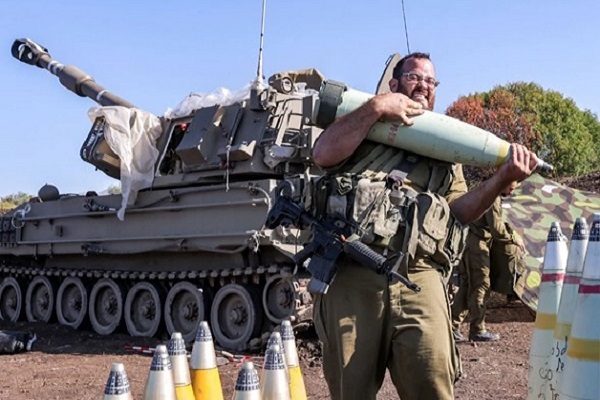ICJ Ruling Prompts Renewed Calls to Halt Israel Arms Transfers

In a significant development, the International Court of Justice (ICJ) has ordered the Israeli regime to undertake "all measures within its power" to prevent potential acts of genocide against Palestinians in the Gaza Strip.
While the ICJ fell short of explicitly calling for a ceasefire, it acknowledged a credible risk of genocide in the battered region and rejected the dismissal of the case brought by South Africa.
Rights advocates and legal experts have hailed the ICJ's decision as a major setback for Israel, describing it as one of the most significant defeats in the past 75 years.
Raed Jarrar, advocacy director at Democracy for the Arab World Now (DAWN), emphasized that the ruling extends “beyond Israel,” underscoring the legal and political obligations of nations to address the alleged genocide in Gaza, Al Jazeera reported.
The court's decision in The Hague has reignited the push to suspend arms transfers to Israel, including those from the United States, its primary supporter.
Advocates argue that such transfers amount to complicity and breach international law.
"It's a watershed moment where the United States government is put on notice that they cannot continue their blank-cheque policies with Israel," said Jarrar.
Read More:
The US provides at least $3.8bn in military aid to Israel annually. Efforts to condition this assistance on Israel's human rights record and compliance with international law have faced resistance from President Joe Biden, who has increased support for the Israeli government.
Despite reports linking US weapons to Israeli bombings causing civilian casualties in Gaza, attempts to pressure Washington to end transfers have been unsuccessful. The ICJ's recent ruling is seen as a compelling factor urging the US government to reassess its stance.
International human rights groups are urging all UN member-states, including Canada and the United Kingdom, to suspend weapons transfers to Israel.
Both nations, as parties to the Arms Trade Treaty, face mounting pressure following the ICJ decision. The treaty prohibits arms transfers if there is knowledge that the weapons may be used in genocide or other violations of international law.
The UK, having licensed significant military exports to Israel, is now under renewed scrutiny.
Yasmine Ahmed, the UK director at Human Rights Watch, stressed that the ICJ's order should prompt an “immediate” halt to arms exports, emphasizing the country's obligation to prevent genocide.
“The Court found a plausible risk of genocide & the UK has an obligation to prevent genocide & not be complicit,” she wrote on social media.
Read More:
The obligation to prevent genocide, as outlined in the UN's 1948 Genocide Convention, forms the basis of South Africa's case at the ICJ. The court recognized this obligation, noting that "complicity in genocide" is punishable.
Legal experts caution that arms suppliers may face scrutiny and investigations for their role in potential war crimes.
With calls intensifying for a suspension of arms exports, countries like Canada are being urged to reconsider their military assistance.
The ICJ's decision has heightened the gravity of such transfers, prompting advocates to assert that there is no alternative but to suspend arms exports to prevent complicity in potential genocide.
Source: Agencies



